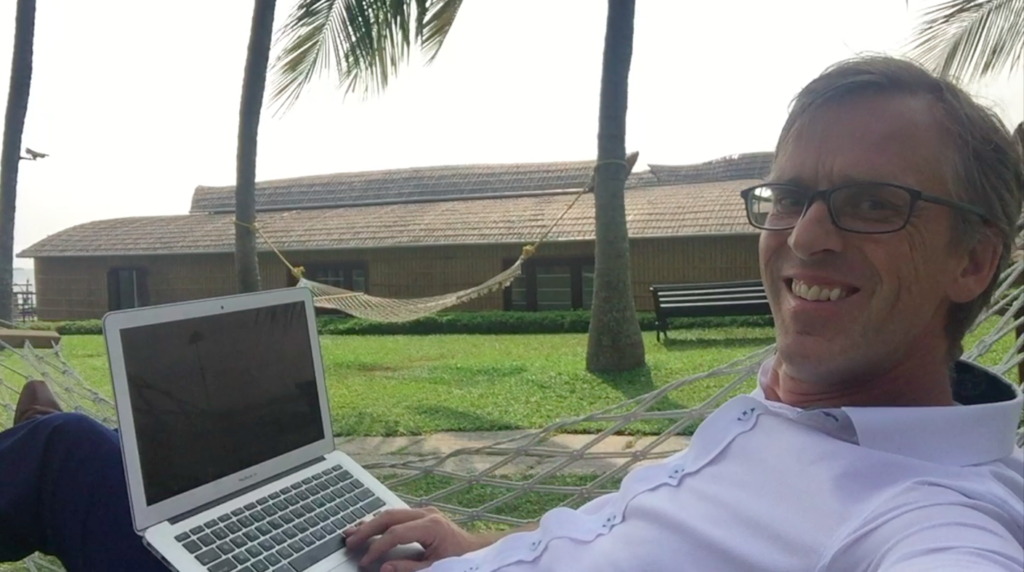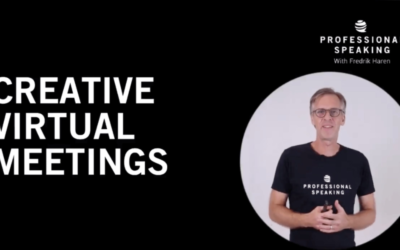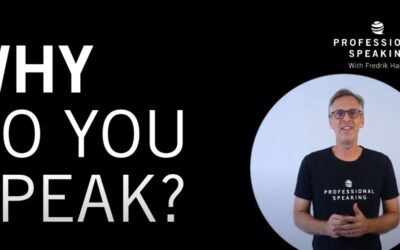
Many people tend to think that to be a great speaker you have to be an extrovert. And yes, some of the characteristics of extroverts are great if you want to be a speaker; like the tendency
– to love attention and to get energy from big crowds of people
– to network before and after a speech
– to love to speak with/to other people
and so on.
Some of the best speakers in the world are extroverts.
But some of the best speakers are also introverts.
The fact is that introverts are in many ways better suited to be speakers. Here are some reasons:
– Introverts only speak when they have something to say. 😉
As a keynote speaker you usually have 1 hour – or less – to get your message a cross. That means that you have quite a limited time frame to play with. As an introvert you will be more careful with the words that you use and thus might be better suited to write a speech that is concise and to the point.
– The speaking is the cherry on the cake – the bulk of the job is research – and research is lonely work.
With a few exceptions you need to have done your research to be able to be a good speaker. Having a book is a great way to get credibility as a speaker, but writing a book is, for the most part, a very lonely process. You sit, by yourself, in front of the laptop and write, write and write. All of that writing and researching is generally better suited for a person who is comfortable on his (or her) own.
I have spent 1000’s and 1000’s of hours reading, researching and writing the material that becomes my speeches. The fact that I like sitting by myself with my computer on some deserted beach, or on my island, is a plus.
– Introverts like to observe their surroundings
The job of a professional speaker is often that of a messenger, of informing an audience of something that they need to know. For a job like that it helps to have a personality which likes to observe.
I remember when I once attended a Tony Robbins training. There were 1000’s of people jumping up and down and totally getting drawn into the message that was being communicated on stage by Tony. I was in the far right hand corner observing the audience (I was there to see how Tony Robbins worked with a group.). I suddenly looked around where I was standing and all around me where perhaps 10 other professional speakers, all standing in the far, right hand corner so that they too could observe the audience…
So see what is happening in a room it sometimes helps to not be the center of attention.
The same is true for trying to understand what is happening in the world.
– The job of a professional speaker is 90% travel.
If you speak internationally or globally the job is actually more of “professional traveler” than “professional speaker”.
I am writing this at the airport of Kochi, in Kerala, India. I left 8 PM Monday and will be back home 8 AM Wednesday. That is 36 hours.
Out of those 36 hours I will speak 1,5 hour. Network with the client for 1.5 hours (inclusive of lunch). That means 3 out of 36 hours are “social”.
The rest is all “lonely work”.
– Time on flights: 10 hours.
– Time in taxis: 5 hours
– Time in airports 5 hours
– Sleeping at resort: 7 hours.
– emailing and writing at resort: 4
– Sitting in the back of the conference checking out the crowd: 2 hours.
= 33 hours (out of 36 hours) is “alone time”.
If you are not an introvert that might kill you.
If you are an introvert, you like it. It gives you – me – time to think, reflect and write.
– You have no colleagues.
Almost all speakers work for themselves. They might have an assistant, not uncommonly a virtual one, but the whole concept of “colleagues” is usually lost on a speaker.(The reason why speaker associations are so popular with speakers is that it’s a way to actually get some kind of “collegial feeling” in a profession that is mostly run by solopreneurs.) That means that people who “need” colleagues might not like the workday of a professional speaker.
Again, I am not saying that extroverts are not great speakers.
I am saying that to make professional speaking your profession (especially being a global speaker which involves a lot traveling by yourself) it might actually help if you are an introvert.
Take it from an introvert who has been speaking professionally for 20+ years: if you are an introvert and want to be a speaker: go for it.
(Picture from me working by myself for a few hours in a hammock at the resort in Kochi, after delivering my speech, while waiting for my driver to arrive.)




